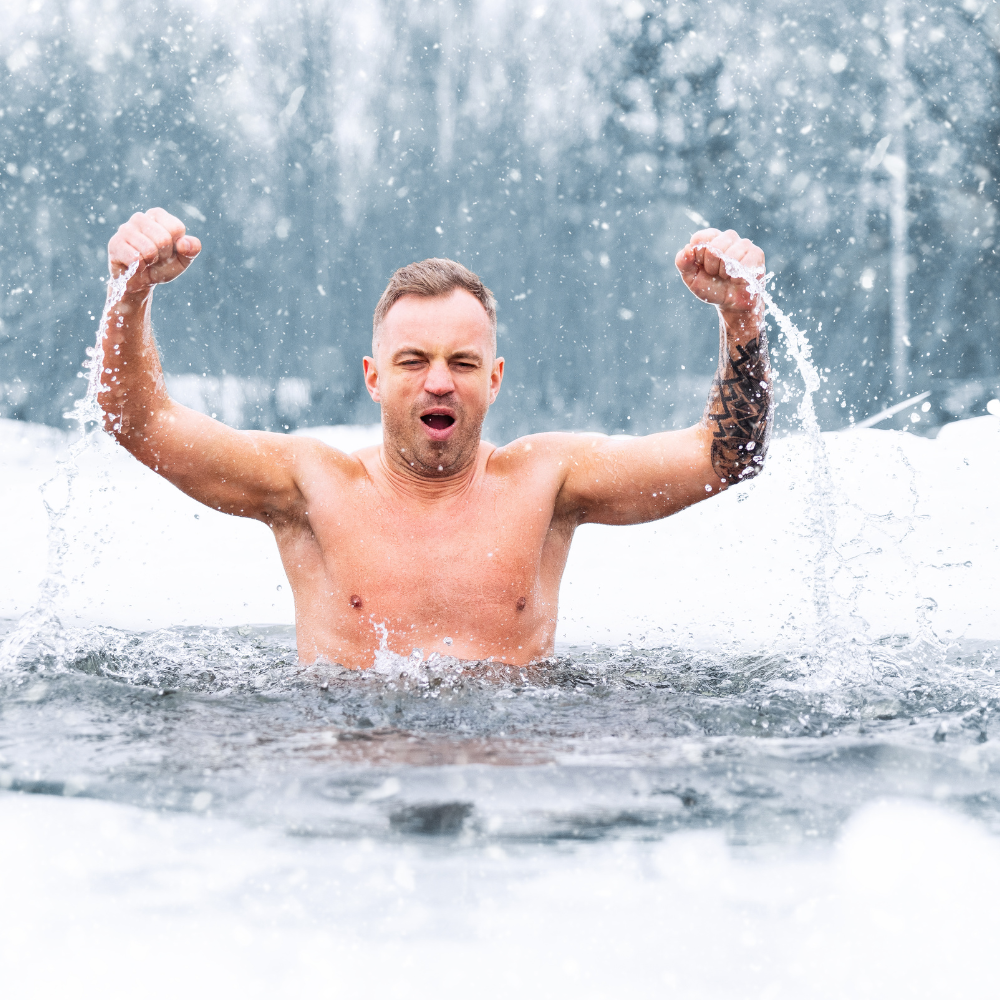Cold Water Swimming: Embrace the Chill for a Refreshing Experience

Imagine diving into a crystal-clear lake or plunging into the icy waters of the ocean.
Cold water swimming, also known as winter swimming or ice swimming, has gained popularity for its invigorating effects on both the body and mind.
In this article, we will explore the numerous benefits of cold water swimming, learn essential techniques and safety precautions, discover popular destinations, and dive into the vibrant communities that embrace this exhilarating activity.
Benefits of Cold Water Swimming
Cold water swimming offers a multitude of benefits that can positively impact both physical and mental well-being.
Physical Health Benefits
Boosts Immune System: Cold water swimming stimulates the production of white blood cells, improving the overall functioning of the immune system.
Enhances Circulation: The cold water causes blood vessels to constrict, increasing blood circulation and delivering oxygen and nutrients more efficiently throughout the body.
Improves Cardiovascular Health: Regular cold water swimming can enhance heart health, strengthen the cardiovascular system, and lower blood pressure.
Increases Metabolism: The body's metabolic rate is elevated during cold water immersion, leading to potential weight loss and increased calorie burning.
Mental Health Benefits
Elevates Mood: Cold water swimming triggers the release of endorphins, dopamine, and serotonin, leading to a natural high and an improved mood.
Reduces Stress and Anxiety: The shock of cold water activates the body's "fight-or-flight" response, releasing stress hormones and helping to reduce stress and anxiety levels.
Boosts Mental Resilience: Regular exposure to cold water can enhance mental resilience, promoting a sense of accomplishment and increasing the ability to handle stressful situations.
Check out our full article about the benefits of cold water swimming Here
Cold Water Swimming Techniques
To fully enjoy the experience and ensure safety, it's important to follow proper cold water swimming techniques.
Acclimatization
Start with shorter dips in cold water and gradually increase the duration as your body adapts to the temperature.
Controlled Breathing
Practice deep and controlled breathing to manage the initial shock of cold water immersion and maintain a steady rhythm.
Swim Techniques
Employ different swimming strokes, such as the breaststroke or front crawl, to generate body heat and propel yourself efficiently in the water.
Safety Precautions
While cold water swimming can be exhilarating, it's crucial to prioritize safety to prevent accidents or hypothermia.
Always swim with a companion to ensure mutual support and assistance in case of emergencies.
Before entering the water, assess the temperature to gauge your comfort level and adjust your swimming plans accordingly.
Wear a suitable wetsuit or cold water swimming gear to protect your body from extreme cold and minimize heat loss.
Equipment for Cold Water Swimming
To enhance your cold water swimming experience, consider investing in the following equipment:
- Wetsuit: A well-fitting wetsuit provides insulation and buoyancy, allowing you to swim comfortably in cold water.
- Neoprene Gloves and Booties: These accessories protect the extremities from cold and provide additional insulation.
- Swim Cap: A snug-fitting swim cap helps retain body heat and keeps your head warm during swimming sessions.
Check out our article about the best swimming headphonses Here
Cold Water Swimming vs. Traditional Swimming
While traditional swimming is popular, cold water swimming offers a unique experience and additional benefits:
Cold water swimming provides an invigorating contrast to traditional swimming, offering a refreshing challenge for adventurous individuals.
Cold water swimming activates the body in ways that traditional swimming cannot, providing enhanced physical and mental health benefits.
Cold Water Swimming Events and Communities
Participating in cold water swimming events and joining communities can enrich your experience and foster a sense of camaraderie.
Polar Plunges: Polar plunges are organized events where participants plunge into cold water together, often to raise funds for charitable causes.
Winter Swimming Clubs: Many regions have winter swimming clubs or societies that bring together like-minded individuals who share a passion for cold water swimming.
Popular Cold Water Swimming Destinations
Explore these breathtaking destinations that offer unforgettable cold water swimming experiences:
- Loch Lomond, Scotland: Surrounded by stunning landscapes, Loch Lomond provides a pristine location for cold water swimming enthusiasts.
- Lake Tahoe, USA: With its crystal-clear waters and breathtaking scenery, Lake Tahoe offers a serene and invigorating cold water swimming experience.
For a breakdown of the best cold water swimming spots arounf the world check out our article Here
Conclusion
Cold water swimming is more than just a recreational activity; it's a transformative experience that can boost your physical and mental well-being.
By embracing the chill, you can unlock a world of benefits, connect with like-minded individuals, and explore awe-inspiring destinations.
So, dive in and experience the invigorating power of cold water swimming today!
FAQs
Is cold water swimming safe for everyone?
Cold water swimming may not be suitable for individuals with certain medical conditions.
It's advisable to consult with a healthcare professional before starting.
How long should I swim in cold water?
Start with shorter durations and gradually increase the time as your get more comfortable
Can cold water swimming help with weight loss?
Cold water swimming can potentially aid in weight loss due to the increased metabolic rate and calorie burning.
However, it should be complemented with a balanced diet and regular exercise.
What should I do if I start feeling too cold while swimming?
If you start feeling too cold or experience symptoms of hypothermia, it's important to exit the water immediately and warm up.
Seek shelter, change into warm clothing, and consume warm fluids to raise your body temperature.
Are there any specific precautions for cold water swimming in open water?
When swimming in open water, it's crucial to be aware of currents, tides, and weather conditions.
Always check the local guidelines, swim in designated areas, and avoid swimming alone in remote locations.
Thanks for Reading
RecognizedReviews
